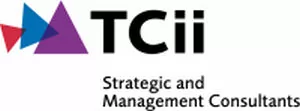What CEO/MD doesn't want to increase sales? The challenge isn't usually whether to grow sales or not, but how to do it without adding significant cost and/or risk. All too often, growing sales means making sweeping changes to staffing, commission plans, territory alignment and/or processes.
CEOs far too often buy into the need for overhauls rather than tune-ups – either on their own initiative or by acceding to the recommendations of their sales executives. Long before radical steps are required, some simple, basic tweaks can make significant improvement in sales results that can drop profit to the bottom line.
Sales organisation myths
CEOs often hear from their sales executive and/or sales force that the following are either current issues, or required to increase sales:
- We need more sales reps.
- We need higher compensation.
- 20% of our reps will always generate 80% of sales.
- We need a new commission plan.
- We need more leads.
- Great sales reps are unique and cannot be managed.
Sales management challenges
The four areas that have both the greatest impact on sales and the ability to be tweaked without radical or risky steps are:
- Balance – not accepting the 80/20 rule, i.e. 20% of sales reps will always deliver 80% of sales
- Performance to expectations – expecting all reps to meet their quota, every month
- Consistency – sales throughout a period, not bunched at the end of months or quarters
- Forecasting – accurate forecasts for the rest of the organisation's planning.
Addressing these four challenges is the answer to scalability, i.e. growing sales with your existing organisation.
The keys to increasing sales results
There are three focus areas that, when addressed together, can have significant impact on sales results:
1. Turning sales activity into a process
2. Alignment of the sales process with clear company business objectives
3. Setting individual accountability to clear expectations
Ask yourself the following questions to assess each area.
1. Turning sales activity into a process
- Do you have a defined sales process? (If "no", skip to the next set.)
- Does the organisation maintain sales tools for each step of the sales process?
- Do you monitor each step in the sales process?
- Is the sales process understood by the organisation?
2. Alignment of the sales process with clear company business objectives
- Do your sales reps have a compelling value proposition and target market? (If "no", skip to the next set.)
- Do the executive staff and sales organisation use the same compelling value proposition and target market?
- Do you monitor selling of your compelling value proposition to your target market?
- Is your compelling value proposition and target market understood by the entire organisation?
3. Setting individual accountability to clear expectations
- Are individual sales reps' expectations defined and communicated?
- Are individual sales reps held accountable for forecast accuracy?
- Do you monitor individual performance against defined expectations?
- Is the entire company held accountable for supporting sales process execution?
Where do you start?
If the answers to the above three sets of questions were not a clear and resounding "yes", then there are some key initiatives that you can begin in your organisation:
- Develop and enforce a sales process.
- Create clear alignment between company business objectives and sales department objectives.
- Define clear expectations for each sales rep, and begin holding them accountable for performance against those expectations.
- Initiate monthly insights from sales reps.
Monthly sales rep insights
To instil and reinforce the kind of behaviour that leads to increased sales on an ongoing basis, have your sales reps answer the following four questions at the beginning of every month – without fail:
- What was my biggest accomplishment for the last month?
- How did I do against last month's quota?
- How do I look for meeting this month's quota?
- What is the most significant hurdle I have in meeting this month's quota?
The key is to look for and require specific, quality answers.
Leadership for sales
CEOs often did not grow up in the sales function, and therefore either believe in certain anecdotal approaches to manage sales reps or have hired an experienced sales executive who knows how to do so. The issue then becomes whether the anecdotal tactics are true and really work, and/or how tightly the CEO manages the sales executive who is supposed to bring the right knowledge and skills.
Unfortunately, all too often the anecdotal approaches are incorrect, or have led to even greater sales problems. Or, the sales executive is able to convince the CEO of certain actions that either may not lead to the desired results or, worse, may put sales at risk.
Rather than sweeping changes or radical surgery, great CEOs initiate fundamental steps that encompass process, alignment and accountability to improve sales results – the same kind of leadership that they exert in every other area of their business.
The content of this article is intended to provide a general guide to the subject matter. Specialist advice should be sought about your specific circumstances.

